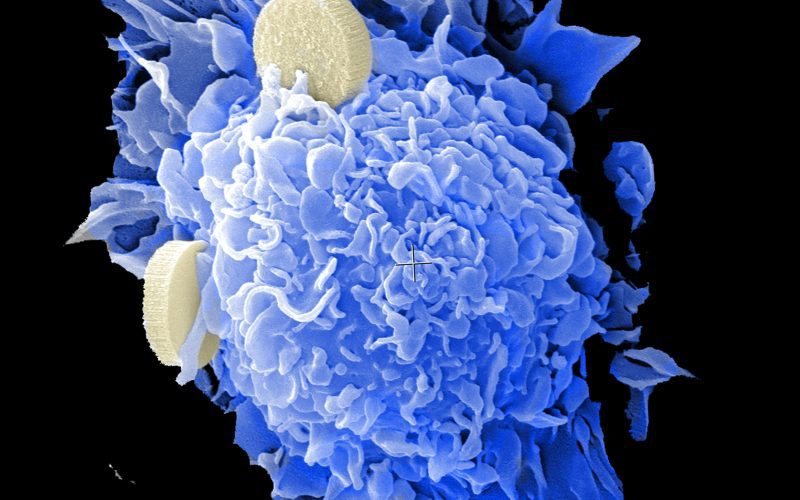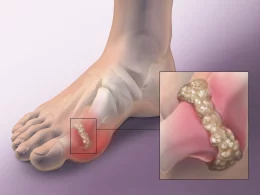Cancer. The word itself can strike fear into our hearts. It’s a disease that has affected millions of people worldwide and claimed countless lives. But what if there was a way to prevent it from ever happening in the first place? What if we could get ahead of the curve and develop a vaccine for cancer? It may sound like something out of science fiction, but researchers around the world are working tirelessly towards this goal. In this blog post, we’ll explore what exactly cancer is, what causes it, current treatment options available, and most importantly – whether or not a cancer vaccine is in your future. So sit back, grab a cup of tea (or coffee), and let’s dive in!
What is cancer?
Cancer is a disease characterized by the uncontrolled growth and spread of abnormal cells in the body. These cells can form tumors, invade nearby tissue, and even travel to other parts of the body through the bloodstream or lymphatic system.
There are many different types of cancer that can affect various organs and systems within the body. Some common types include breast cancer, lung cancer, prostate cancer, colorectal cancer, and skin cancer.
Cancer cells are different from normal cells in several ways. They divide uncontrollably, don’t respond to signals telling them to stop growing or dividing, ignore cell death signals that would normally cause them to self-destruct when they become damaged or old.
Unfortunately, this makes it difficult for our immune system to recognize and destroy these abnormal cells as it does with foreign invaders like viruses or bacteria. This is where a possible vaccine could come into play – by training our immune system to specifically target and attack cancerous cells before they have a chance to grow out of control.
What causes cancer?
Cancer is a complex disease that can be caused by various factors. In some instances, it may be due to genetic mutations or inherited gene mutations passed down through generations of a family. However, most cancer cases are caused by external factors such as environmental conditions and lifestyle choices.
Exposure to harmful chemicals such as tobacco smoke, air pollution, and ultraviolet radiation from the sun can cause DNA damage in cells which can lead to cancer development. Along with this, unhealthy habits such as excessive alcohol consumption, poor diet choices, and lack of physical activity have been linked to an increased risk of developing certain types of cancers.
Other potential causes include infections from viruses like HPV (human papillomavirus), Hepatitis B and C which increase the risk for liver and cervical cancers respectively. Furthermore, hormonal imbalances or exposure to hormones in medications could also contribute to cancer.
There are many different variables that play a role in causing cancer. While some causes may be out of our control – being aware of these potential risks along with making healthier lifestyle choices could help reduce the chances of developing this disease.
What are the current treatments for cancer?
Cancer treatments vary depending on the type and stage of cancer. The most common treatment options include surgery, chemotherapy, radiation therapy, immunotherapy, targeted therapy, hormone therapy, and stem cell transplant.
Surgery is often used to remove tumors or cancerous tissues from the body. It can be a primary treatment for early-stage cancers or used in combination with other treatments for advanced stages.
Chemotherapy involves using drugs to kill cancer cells throughout the body. These drugs can be taken orally or injected into a vein.
Radiation therapy uses high-energy particles or waves to destroy cancer cells. This treatment is usually done over several sessions and may cause side effects such as fatigue and skin irritation.
Immunotherapy aims to stimulate the immune system to identify and attack cancer cells. This treatment option has shown promising results in some types of cancers such as melanoma and lung cancer.
Targeted therapies use drugs that specifically target certain proteins or genes involved in tumor growth. These therapies are often used alongside other treatments for more effective outcomes.
Hormone therapy works by blocking hormones that promote certain types of cancers such as breast or prostate cancer.
Stem cell transplant involves replacing damaged bone marrow with healthy stem cells to help rebuild blood-forming cells destroyed during chemotherapy or radiation therapy.
There are many different options available for treating cancer depending on individual circumstances which can improve survival rates when caught early enough.
What is a cancer vaccine?
A cancer vaccine is a type of immunization that aims to stimulate the body’s immune system to recognize and attack cancer cells. Unlike traditional vaccines, which are designed to prevent infectious diseases by priming the immune system against specific pathogens, cancer vaccines are intended to treat existing cancers.
There are two main types of cancer vaccines: preventive and therapeutic. Preventive vaccines aim to protect healthy individuals from developing certain types of cancers by targeting viruses that can cause them, such as human papillomavirus (HPV) and hepatitis B virus (HBV).
Therapeutic vaccines, on the other hand, are designed for people who already have cancer. These vaccines work by activating the immune system to recognize and destroy tumor cells. They may be used alone or in combination with other treatments like chemotherapy or radiation therapy.
Cancer vaccines typically contain fragments of proteins called antigens that are found on the surface of cancer cells. When these antigens enter the body through vaccination, they trigger an immune response that targets not only the vaccine itself but also any similar-looking cancer cells in the body.
While still in early stages of development, researchers hope that one day a successful vaccine could provide long-term protection against some forms of cancers without needing invasive treatments like surgery.
How does a cancer vaccine work?
A cancer vaccine works by stimulating the immune system to recognize and attack cancer cells. The vaccine contains antigens, which are substances found on the surface of cancer cells that trigger an immune response.
When a person is vaccinated against cancer, their body produces antibodies and T-cells that specifically target these antigens. This creates a memory in the immune system so that if it encounters those same antigens again, it can mount a rapid and effective attack against them.
Some cancer vaccines include live or weakened viruses modified to produce specific tumor-associated antigens. Others use synthetic peptides or proteins that mimic these antigens.
It’s important to note that unlike traditional vaccines which aim to prevent disease, cancer vaccines are used as a treatment for existing cancers. They may be given alone or in combination with other treatments such as chemotherapy or radiation therapy.
While still in development, researchers hope that eventually there will be personalized cancer vaccines tailored to each individual’s unique genetic makeup and type of tumor.
Are there any cancer vaccines currently available?
Cancer vaccines have been a topic of research for many years, but currently, there are only a few cancer vaccines available. One such vaccine is the human papillomavirus (HPV) vaccine, which can prevent certain types of cancers caused by HPV infection.
Another type of cancer vaccine that is available is the Bacille Calmette-Guerin (BCG) vaccine used for bladder cancer treatment. This vaccine works by stimulating an immune response to kill cancer cells in the bladder.
There are also several ongoing clinical trials for other types of cancer vaccines, including breast and lung cancers. These vaccines work by using different methods to stimulate the body’s immune system to recognize and attack cancer cells specifically.
It’s important to note that while these current and potential future cancer vaccines show promise, they are not a one-size-fits-all solution for all types of cancers. Each type of cancer may require its own unique approach and treatment plan based on individual patient needs.
While there are currently only a limited number of approved cancer vaccines available, ongoing research gives hope for more effective treatments in the future.
Conclusion
Cancer continues to be one of the leading causes of death worldwide. Despite advances in treatment options, there is still a need for more effective and targeted therapies.
The development of vaccines has shown promise as a potential solution to this problem, with ongoing research towards creating safe and efficient cancer vaccines. While there are currently no widely available cancer vaccines on the market today, the future looks promising.
As research into immunotherapy and personalized medicine continues to grow, we may see significant breakthroughs that could lead to earlier detection and more successful treatments for those affected by cancer.
Ultimately, it’s crucial that we continue investing in research efforts aimed at developing better ways of preventing or treating cancers. With continued innovation and collaboration among scientists, healthcare providers, patients and families affected by this disease, we can hope for a brighter future where cancer is no longer an inevitable outcome but rather something that can be prevented or even cured through vaccination programs.












